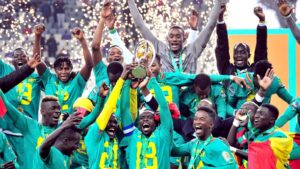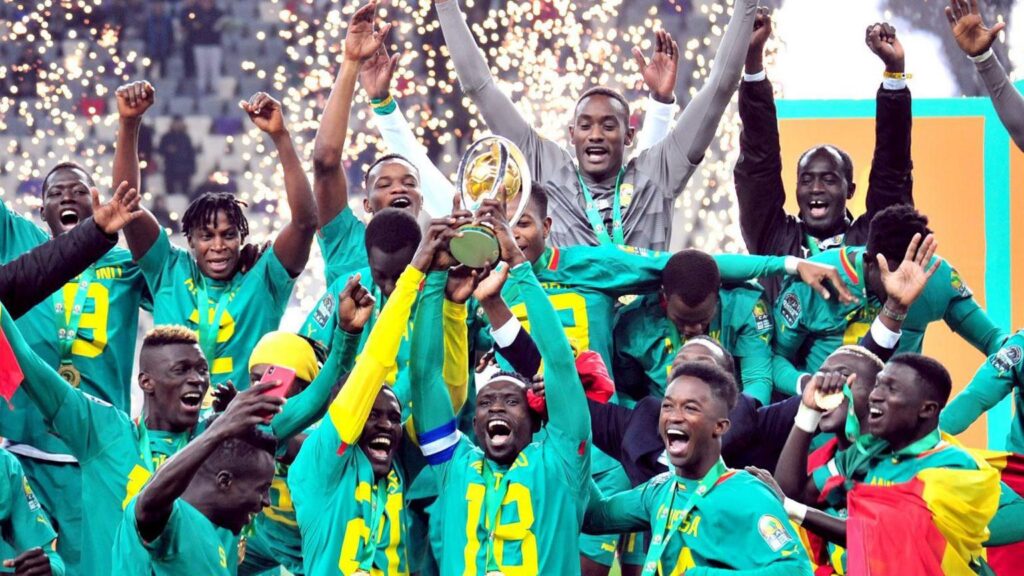CHAN 2024, the Africa Nations Championship for domestic-based players. It has been met with a wave of support following its postponement from February to August. This decision, made by the Confederation of African Football (CAF). It is to ensure adequate infrastructure and facilities in the co-hosting nations of Kenya, Tanzania, and Uganda. This has been welcomed by footballing figures across the continent, despite concerns about the competition’s long-term viability.
Reports suggested that Kenya required the most significant improvements to its stadiums and infrastructure. However, Kenyan Sports Minister Salim Mvurya dismissed these claims as “baseless,”. While Football Kenya Federation President Hussein Mohammed emphasized that the six-month delay would provide ample “time to improve on perfection.” CAF’s late postponement, just 18 days before the scheduled opening game, inevitably disrupted preparations for many teams. Squads had already been announced, training camps established, and travel and accommodation arrangements finalized.
Impact on Domestic Leagues
The mid-season timing of the original tournament presented a significant challenge, particularly for domestic leagues. Hersi Said, President of Tanzanian club Yanga, expressed his relief at the postponement. Acknowledging the detrimental impact it would have had on the domestic league. “It was too challenging,” Said told BBC Sport Africa. “Normally in Tanzania, the league concludes by the end of May. Hosting CHAN in February would have extended the season into July, creating logistical and scheduling difficulties.”
CHAN’s Significance and Future
CHAN, first played in 2009, was established by CAF to provide tournament experience for players based on the continent. This is particularly crucial as many senior national teams rely heavily on players plying their trade overseas, predominantly in Europe. Former Tanzania FA President Leodgar Tenga described CHAN as a “noble cause”. He has urged football leaders to ensure its continued success.
From a player’s perspective, Kenyan midfielder Kenneth Muguna viewed the postponement as a “positive” for his team. “It gives us enough room and time for preparation,” he added. “We were looking forward to playing in February, but unfortunately, it is not there. We still need to go out there and grind more to ensure we are ready when CHAN arrives.”
Challenges and Concerns
Libya and Tunisia withdrew from the finals, a decision reportedly linked to club opposition to releasing players and the resulting disruption to domestic leagues. Notably, 14 nations, including 2022 hosts and runners-up Algeria, Egypt, and South Africa, did not even enter the preliminary rounds, highlighting a potential imbalance in the competition.
However, after CAF increased the prize money to $10.4 million ($8.47 million), with $3.5 million ($2.85 million) for the winners, these three heavyweights, along with four other countries, will participate in a separate qualifying tournament to determine the final two entrants for CHAN 2024.
Player Welfare and a Packed Schedule
One significant concern remains the timing of CHAN within an increasingly congested football calendar. The 2024 edition has already been pushed back to 2025. The new August dates will follow the inaugural FIFA Club World Cup in the United States, where African giants like Al Ahly, Wydad Casablanca, Esperance, and Mamelodi Sundowns will be competing.
Furthermore, countries relying heavily on domestic players for their CHAN squads will then face 2026 FIFA World Cup qualifiers in September, October, and potentially November, leading into the 2025 Africa Cup of Nations, which kicks off on December 21.
Despite these concerns, Yanga President Said dismissed worries about player welfare. “The players are signed to play soccer,” he stated. “They’re ready to play any time. They don’t have any other business to do [other] than playing soccer. The most important thing is to accommodate the tournaments on time and have them planned properly.”
The Draw and the Road Ahead
The group draw for the finals proceeded in Nairobi on Wednesday evening, with the exact competition dates in August to be announced by CAF at a later date. Co-hosts Kenya were drawn in a challenging group alongside two-time CHAN winners Morocco and Angola, prompting mixed reactions from Kenyan football fans.
However, former Harambee Stars midfielder McDonald Mariga, a Serie A and Champions League winner with Inter Milan, expressed confidence in his country’s ability to progress. “We have a big chance to qualify in this group, even though Morocco and Angola have been doing well in the past,” he stated.
CHAN 2024 faces significant challenges, from the impact of postponement on domestic leagues to the increasing congestion of the international football calendar. However, the competition remains a vital platform for developing domestic talent across Africa. As the tournament evolves, careful planning and consideration for the well-being of players and the sustainability of domestic leagues will be crucial for its long-term success.
Are you a sports fan and can’t get enough? Well you are the right place!! Click here and get more stories about what’s happening in the sporting world.

